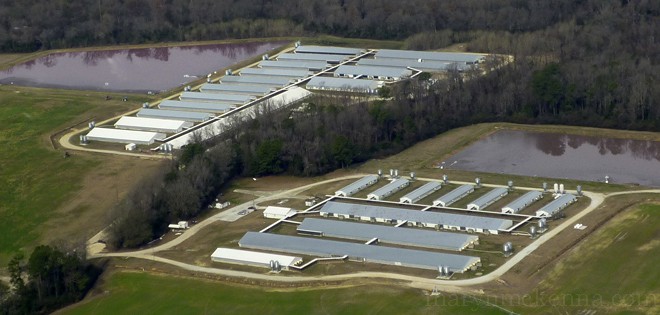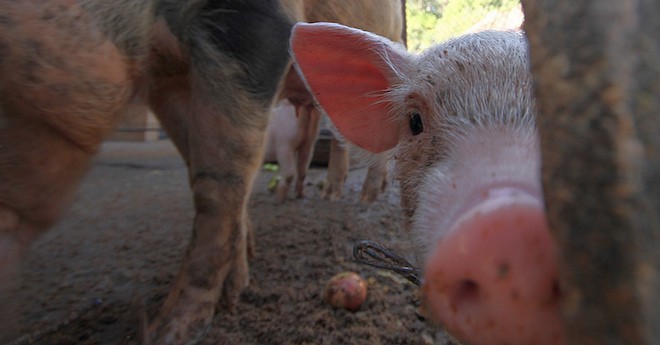One of the persistent questions regarding antibiotic use in meat production, and its effect on the health of humans who live far away from production farms, is: How do the resistant bacteria that result get from one place to another? That is: Most people accept by now that using antibiotics in livestock-raising causes drug resistance to emerge in the systems of those animals, in their guts or on their skin. But whether those newly resistant bacteria leave the farm, and how they make the trip, is both fought over and—despite much investigation—still under-researched.
Some studies have shown that bacteria can move off farms in groundwater, on the feet of flies, and via dust on the wind. What is insufficiently explored—because it is difficult to get large meat-production facilities to cooperate—is whether farm workers themselves are serving as a transport vehicle.
A new study just published (and open-access, so anyone can read it) helps to answer that question. It looks at the possibility that workers on large hog farms are carrying away drug-resistant staph or MRSA, and especially a type of resistant staph — known familiarly as “pig MRSA” and more technically as “livestock-associated MRSA” — that emerged on hog farms a decade ago and is directly linked to farm-drug use.
(If you’ve been visiting Superbug the blog for a while, you might remember pig MRSA; the story of its discovery in a Dutch farmer’s daughter 10 years ago also was told for the first time in Superbug the book. If it’s a new concept to you, you might be interested in this archive here.)
The new study finds that hog farmers are carrying multi-drug resistant livestock-associated MRSA away from the farm and — this is the crucial bit — that their bodies are hanging onto those bacteria, in a way that might allow them to spread, for up to 14 days.











